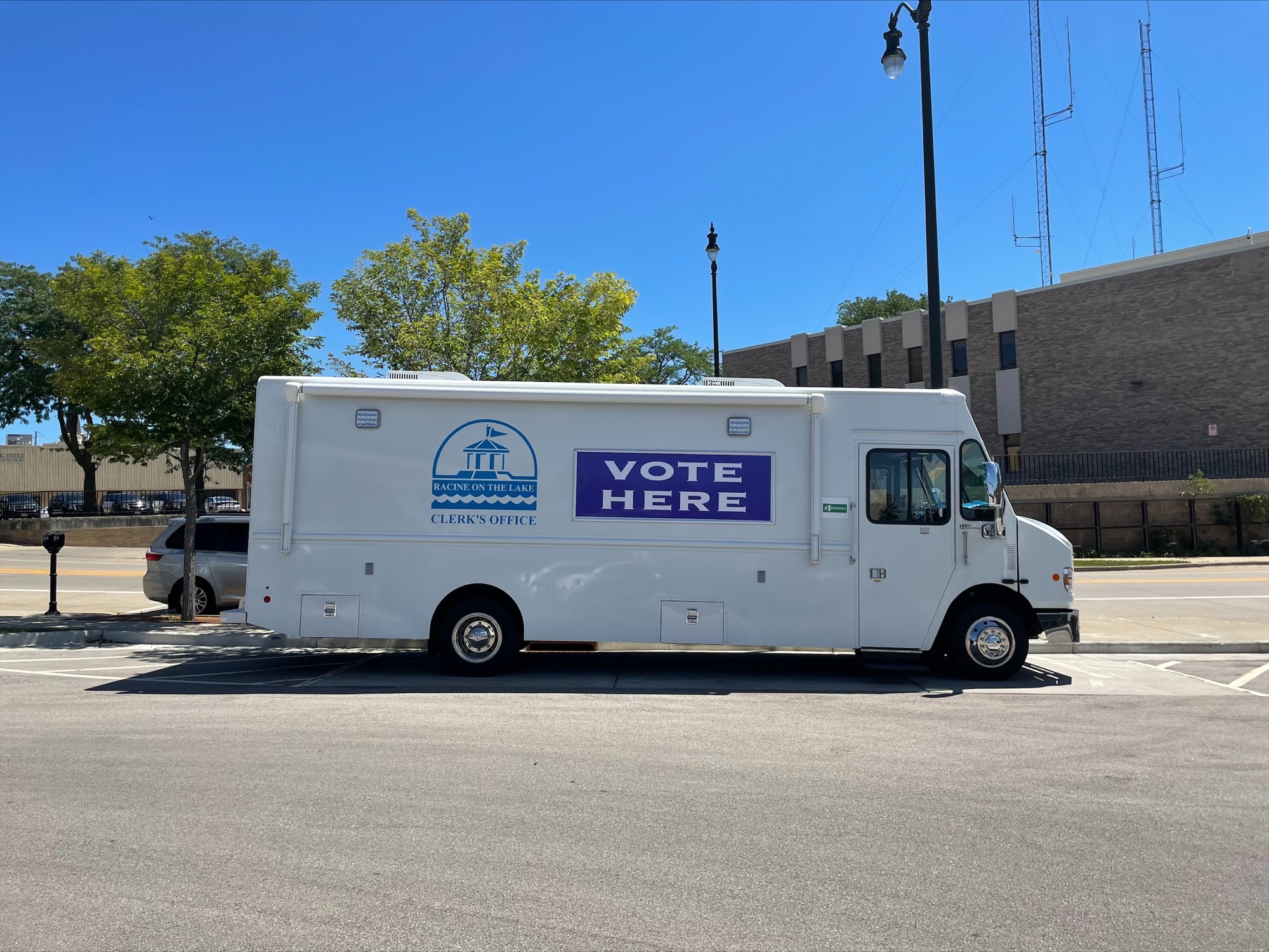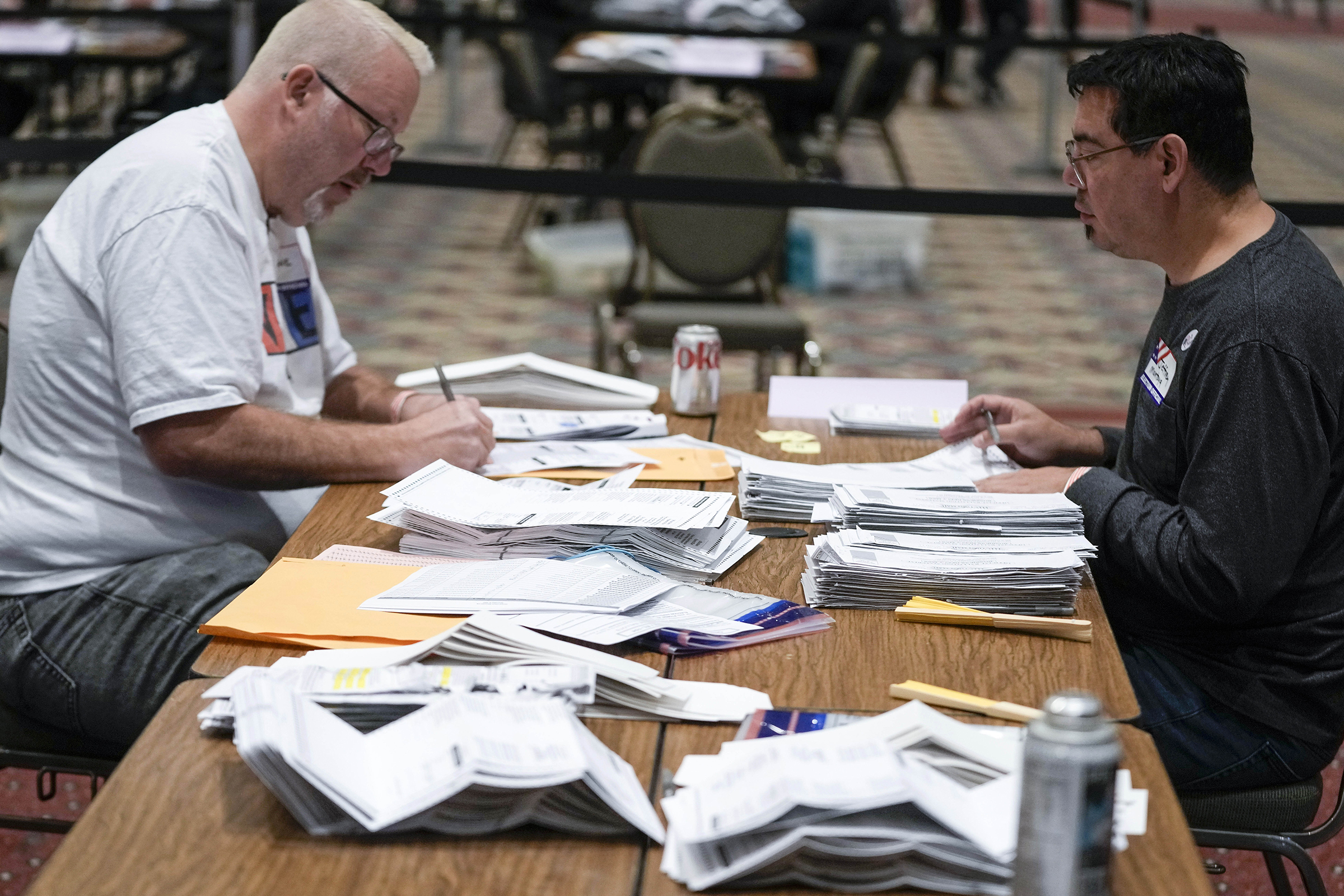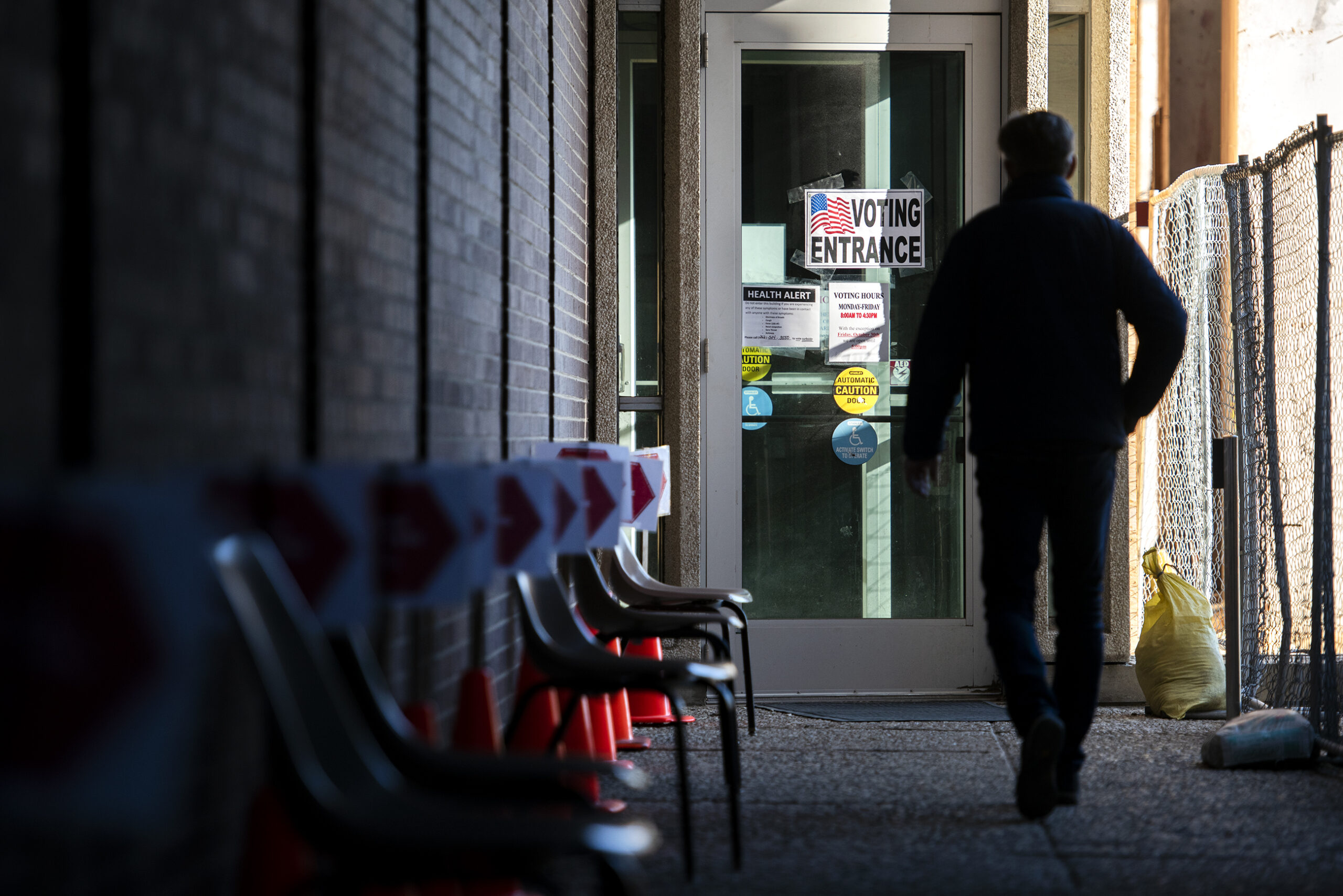The Wisconsin Supreme Court kept a lower court’s ruling banning the use of mobile voting sites in the upcoming presidential election in place for now, a win for Republicans.
However, in a victory for Democrats, the court also ensured late Tuesday that municipalities across the battleground state can use the same method in place since 2016 to determine where to locate early voting sites for the upcoming August primary and November presidential election.
They just can’t use mobile sites, like Racine did in 2022 when it allowed ballots to be cast in a van that traveled around the city.
Stay informed on the latest news
Sign up for WPR’s email newsletter.
The order came just ahead of Wednesday’s deadline for municipalities to designate alternate locations for voters to cast early, absentee ballots.
Wisconsin state law prohibits locating any early voting site in a place that gives an advantage to any political party. At issue in the current case is how to interpret that law.
The Racine County Circuit Court said in January that the mobile voting vans in Racine were not allowed under the law. Additionally, the van was placed in areas that were advantageous to Democrats, also in violation of the law, the court ruled.
The court said state law means that an advantage to a political party can only be avoided if voters in the immediate vicinity of the early voting location cast their ballots exactly the same as voters who live in the immediate vicinity of the municipal clerk’s office.
The Supreme Court put that interpretation on hold Tuesday.
“At this stage, just months before the August primary and November general elections, there is a risk that the circuit court’s ruling will disrupt ongoing preparations for those elections by creating uncertainty about which sites may be designated as alternate absentee balloting locations,” the court said in its 4-3 order supported by the liberal majority.
Justice Rebecca Bradley, one of the three dissenting conservative justices, said the order by the liberal majority was the latest in an “ongoing effort to resolve cases in a manner benefitting its preferred political party.”
Bradley said that putting a court’s interpretation of the law on hold is “without precedent, and for good reason — doing so is nonsensical.” She and the other two conservative justices agreed with the four liberal justices in keeping the court’s ban on mobile voting sites in place.
The underlying case proceeds in the Wisconsin Supreme Court, which is expected to schedule oral arguments in the fall, too late to affect absentee voting rules for this year’s elections.
While the case is proceeding, the elections commission asked the Supreme Court to put the earlier court ruling on hold in light of Wednesday’s deadline for selecting early voting sites.
The Supreme Court on Tuesday said there was little harm in granting a stay that would keep the same criteria in place for determining early voting locations that has been used since 2016. But it declined to lift the ban on mobile voting sites, a win for Republicans.
The van was first used in Racine’s municipal elections in 2022. It was purchased with grant money Racine received from the Center for Tech and Civic Life, the nonprofit funded by Facebook founder Mark Zuckerberg and his wife. Republicans have been critical of the grants, calling the money “Zuckerbucks” that they say was used to tilt turnout in Democratic areas.
Wisconsin voters in April approved a constitutional amendment banning the use of private money to help run elections.
The Wisconsin Institute for Law and Liberty, on behalf of Racine County Republican Party Chairman Ken Brown, brought the lawsuit after the state elections commission said use of the van in Racine did not break the law.
“We are happy that Racine’s illegal voting van will not be in use for the upcoming elections,” WILL attorney Lucas Vebber said in a statement.
Racine officials, the Democratic National Committee and the Milwaukee-based voting advocacy group Black Leaders Organizing for Communities joined with the elections commission in defending the use of the van.
Timothy White, spokesperson for President Joe Biden’s campaign in Wisconsin, said the portion of the order keeping the same criteria in place for picking early voting sites was a “win for democracy.”
© Copyright 2025 by The Associated Press. All rights reserved. This material may not be published, broadcast, rewritten or redistributed.




